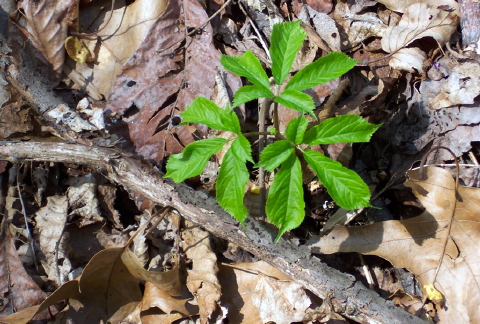GINSENG DIGGIN' SEASON STARTS SEPT. 1 - Some Advice For Ginseng Growers

By Forester, Russ Richardson
A week from now, September 1, the official season for legally digging wild ginseng begins in West Virginia.
Highly sought after by wealthy people in Asia, especially the Chinese and Koreans, the value of wild American ginseng has risen dramatically the last few years. During the past year, there has been more than one program on television highlighting theft and poaching of ginseng for cash as an "off the grid" way of life or business plan.
Anyone who is a ginseng grower or has a patch of sang they watch over should be wary of uninvited visitors to their woods during the next few weeks.
Last year, a local ginseng grower experienced a spectacular level of theft when they neglected to follow up on checking the destination of two unfamiliar cars that passed their remote house early one morning. A day and a half later they discovered that in what appears to have been an organized effort, their ginseng patch had been completely wiped out and only holes were left in the ground as robbers had dug and taken the entire plants including tops, berries and roots from the family "patch". In one just one weekend, decades of effort the family had invested in growing and protecting a patch of ginseng on their heavily posted land was destroyed.
It is against the law for people to dig ginseng on private property in West Virginia without written permission of the landowner.
The West Virginia Division of Forestry has Special Investigators on their staff that deal with issues related to forestry related crimes including arson and ginseng theft. Woodland owners who experience theft in their ginseng patch and have questions for how to prosecute thieves, especially if you have evidence of the trespass and poaching activity on any surveillance photos, should call the WV Division of Forestry at 304-558-2788.